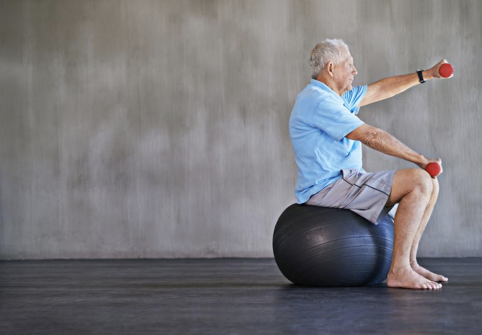
How to Self-Care Osteoarthritis at Home?
Here are simple ways you can ease osteoarthritis symptoms on your own, at home.
Stay active:
Exercise may be the last thing you want to do when your arthritis hurts, But many studies show that physical activity is one of the best ways to improve your quality of life. Exercise boosts your energy, It can also strengthen your muscles and bones, and help keep your joints flexible. Try resistance training to build stronger muscles. Your muscles protect and support joints affected by arthritis. Go for aerobic workouts to burn calories, which will help you lose weight. Maintaining a healthy weight relieves stress on painful joints.
2. Eat a balanced diet:
Studies show that a variety of nutrients may help ease arthritis symptoms, foods rich in vitamin C, Omega-3 fatty acids. Experts say it's best to focus on healthy foods rather than on single nutrients, You can get all the nutrients you need simply by following a balanced diet. Make sure your menu includes plenty of fruits and vegetables, whole grains, low-fat dairy, fish, and lean meats. Also, choose healthy fats, such as nuts and avocados, and healthy oils, including olive and canola oil.
3. Lose weight:
Being overweight puts undue strain on weight-bearing joints such as your knees, spine, hips, ankles, and feet. Losing weight can ease symptoms of arthritis.
4. Sleep well:
A good night's sleep will help you cope with the pain and stress of arthritis. If you're uncomfortable in bed because of arthritis, try using pillows to take the pressure off painful joints.
5. Use hot or cold packs:
By increasing blood flow, hot compresses can ease pain and stiffness. Cold compresses reduce swelling. You may want to experiment with heat versus cold packs to see what works best for you.
6. Keep pain under control:
Over-the-counter medications can help ease arthritis pain. One of the most common is acetaminophen, because it doesn't upset the stomach. However, taking more than recommended increases the chance of side effects, including liver problems. Other over-the-counter medications can also help, including aspirin, ibuprofen, or naproxen sodium. Possible side effects include stomach irritation and bleeding.
7. Supplements and complementary medicine:
Many supplements have been tested for the treatment of arthritis, Glucosamine show the most promise. Glucosamine, often along with chondroitin, has helped improve pain in some studies.
People with arthritis also turn to treatments such as acupuncture and massage. Acupuncture has been shown to ease knee pain and improve function. Massage can increase blood flow and warmth to painful joints.
8. Seek support:
Living with arthritis isn't easy. Finding other people you can talk to and share ideas with can help.
9. Stay positive:
Your mental outlook can have a big impact on how you feel and how well you function. Every day, try to do something you enjoy. Spend time with friends. Develop hobbies that you can do even with arthritis. Focus on your abilities rather than your disabilities.
References:
https://www.webmd.com/osteoarthritis/osteoarthritis-10-tips